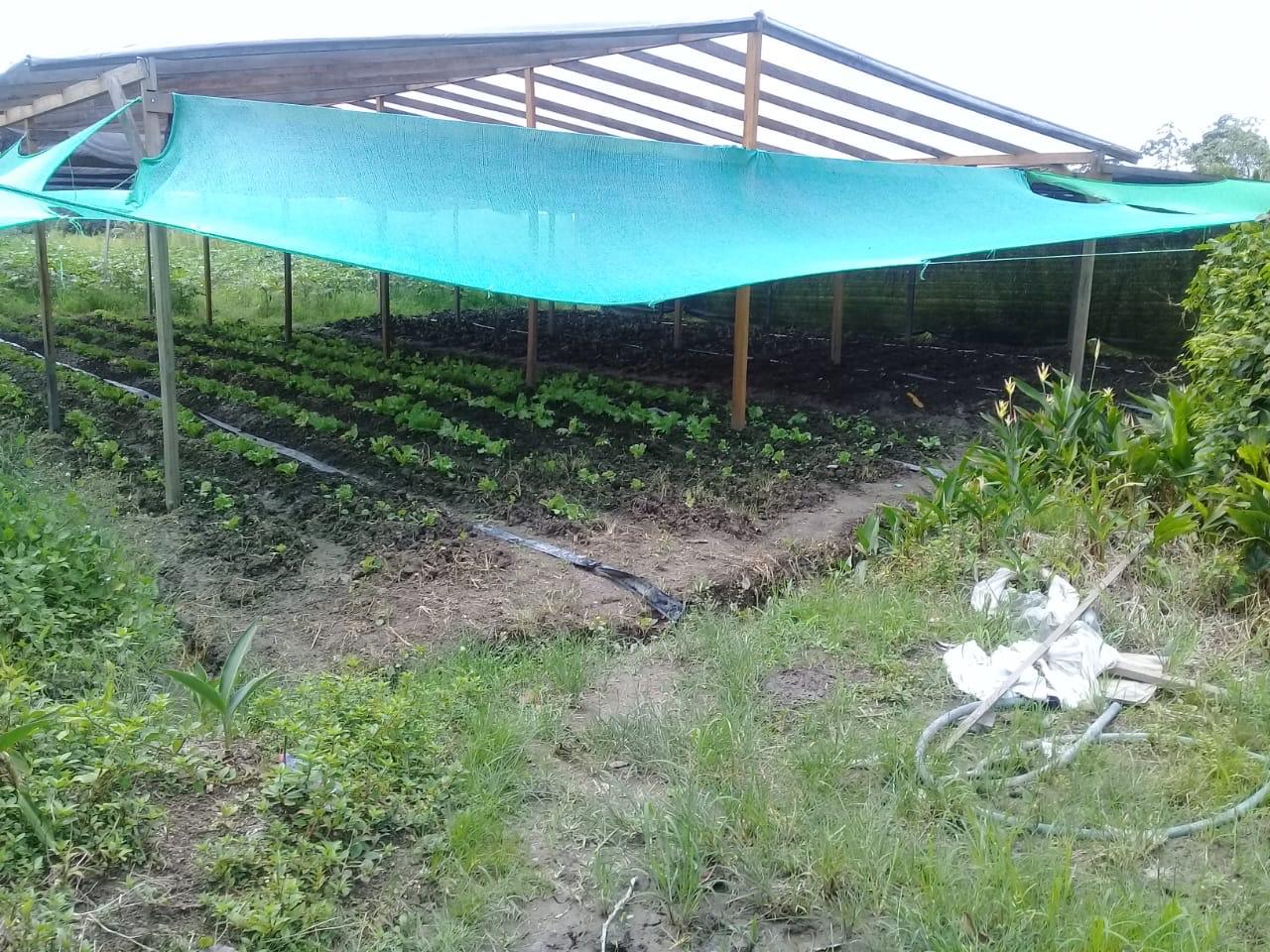FAO and IICA Partnering to Build Climate Resilience During the Pandemic

The climate smart agriculture solution provided by FAO and IICA is seen as ‘a learning-by-doing’ tool for farmers and their children who are home from school due to the Covid-19 pandemic. One farmer noted, “My son is learning and helping me to produce more and his friends are asking him for assistance.” This engagement had provided an opportunity for improved skills and economic gains during the pandemic, while allowing farmers and their children to be more meaningfully occupied in a safe environment.
Since Covid-19 emerged life has changed for everyone around the world. Transforming food systems to maintain food security became one of the biggest challenges in this global pandemic, especially as we grapple with the adverse effects of climate change.
The Food and Agriculture Organization (FAO) and Inter-American Institute for Cooperation on Agriculture (IICA) facilitated a pilot project on Climate Smart Agriculture for farmers in the Parika/Namryck communities of Guyana, Region#3. These communities are prone to floods while the rising temperatures and changing precipitation patterns increase soil vulnerability. Added to climate variability are pests and crop diseases and increased atmospheric carbon dioxide all of which add more stress to farmers.
The FAO-IICA pilot offered an affordable greenhouse solution known as a shadehouse that is effective on a small, sustainable scale to mitigate some of the effects of climate change and provided strategies for smallholder farmers to adapt to the changing environment. Greenhouses cannot reverse climate change, but they are well suited to increase the adaptive capacity for farming.
Greenhouse crop production is a growing reality globally. The degree of sophistication and the technologies applied depend on local climatic conditions. A range of materials and techniques are available for shading such as external shade cloths, coloured nets, partially reflective shade screens, water film over the roof and liquid foam between the greenhouse walls. The use of shadehouses in the tropics has increased in recent years since they are very effective in managing air and crop temperature, provide a better environment (micro-climate) to increase the rate of photosynthesis (photosynthesis minus photorespiration) and reduce mitochondrial respiration thus contributing to a more suitable environment for better yields.
The COVID-19 pandemic reminded us that our food systems are vulnerable to external shocks. While we are trying to keep agriculture safely operating as an essential service, accessing agrifood is challenging for those who have lost their income and jobs as well as vulnerable groups such as single female-headed households, indigenous communities, rural dwellers, the elderly, the unemployed and under-employed and persons living below or on the poverty line.
FAO and IICA share similar agendas relating to sustainable farming and economic growth, increasing resilience to climate change in rural farming areas and food security. Together, they provided technical guidance and materials to support over thirty farmers affiliated with the Parika/Namryck Farmers Association. The farmers benefited from two weeks of training on the construction management of shadehouses, how to grow plants in a structured setting and making the best use of small spaces. Materials such as wood and greenhouse plastic were provided to offset the cost for farmers. Added to the training, IICA Representative in Guyana, Mr. Wilmot Garnett advocated, “It is important to understand that agriculture is a business and farmers should do basic book keeping to track cost of production and yields to ensure profitability for their efforts. Mr. Garnett reinforced “we also want to demonstrate conservative use of water and urged farmers to use drip irrigation instead of the sprinkler system which not only waste water but also invite fungus and other pests and detracts from what were strive to achieve-Sustainable Farming”.
In a recent visit to the communities, beneficiaries described their first-time experience with the shadehouse as an opening of many opportunities for learning and improving the way they farm. They also learnt about the safety of crops against climate change and pests, and planting wholesome, high quality crops. Parsley, broccoli, lettuce and celery were identified as some of the delicate crops which are grown in the shadehouses and exceeded expectations in production and sales. One farmer noted, “I made full use of the five months at home during this Covid-19 and I am enjoying the time planting with the help of my sons. I always wanted to plant celery and lettuce and now I can do it.”
Dr Gillian, FAO Representative in Guyana advised “this is a new technology for these farmers. It gives them many advantages in their efforts to be more resilient to the impacts of climate change. It also helps them to diversify their production. As they continue to work with the shade houses, they will innovate and achieve much more effectiveness. Together with partners like IICA, we can work to improve agriculture production.”
Among other measurable benefits is the ability to farm consistently during the rainy season and balancing economic gain with sustainable environmental practices. FAO and IICA plan to expand the small greenhouse farming solution to other locations in an effort to foster long term viability and food security while building resilience to climate change. Further, farmers will also benefit from market and price stability through shared agriculture programs, access to farmers’ markets and local distribution networks.
Overall, small greenhouses offer a safe way to protect livelihoods during this Covid-19 pandemic, improve resilience to climate change and create opportunities for lifelong farming and healthy eating habits. A resilient agrifood system will support Guyana’s efforts to achieve the Sustainable Development Goals (SDGs), including SDG 2 – zero hunger which aims to end hunger, achieve food security and improved nutrition, and promote sustainable agriculture.
Contact
Marquita Sugrim FAO National Communications Consultant 1-246-467 6241 [email protected]
